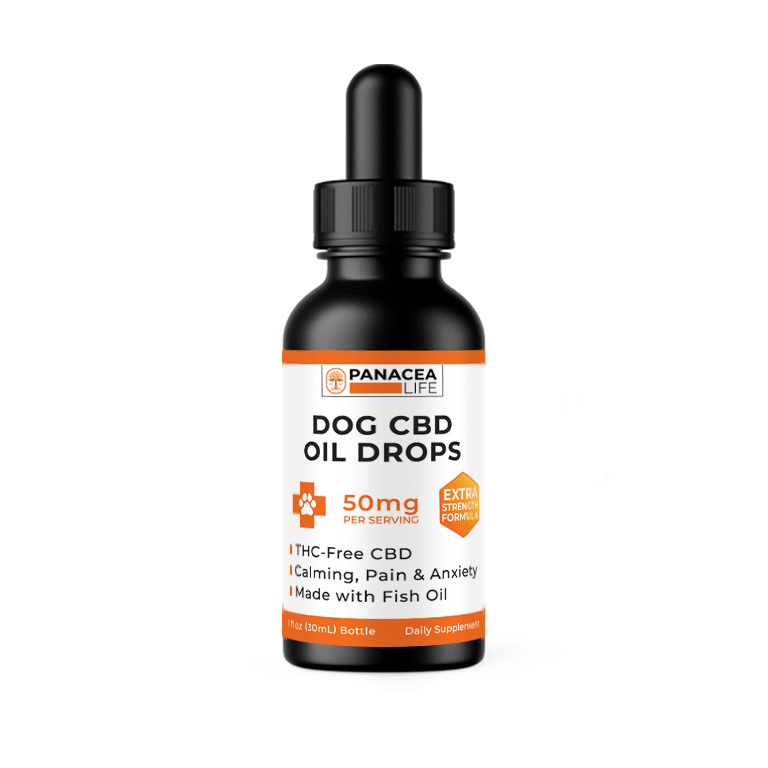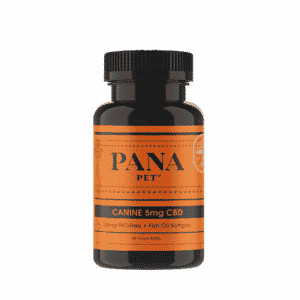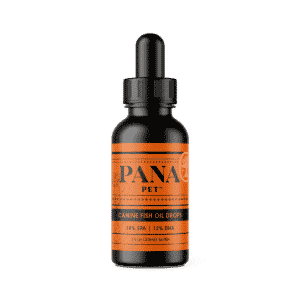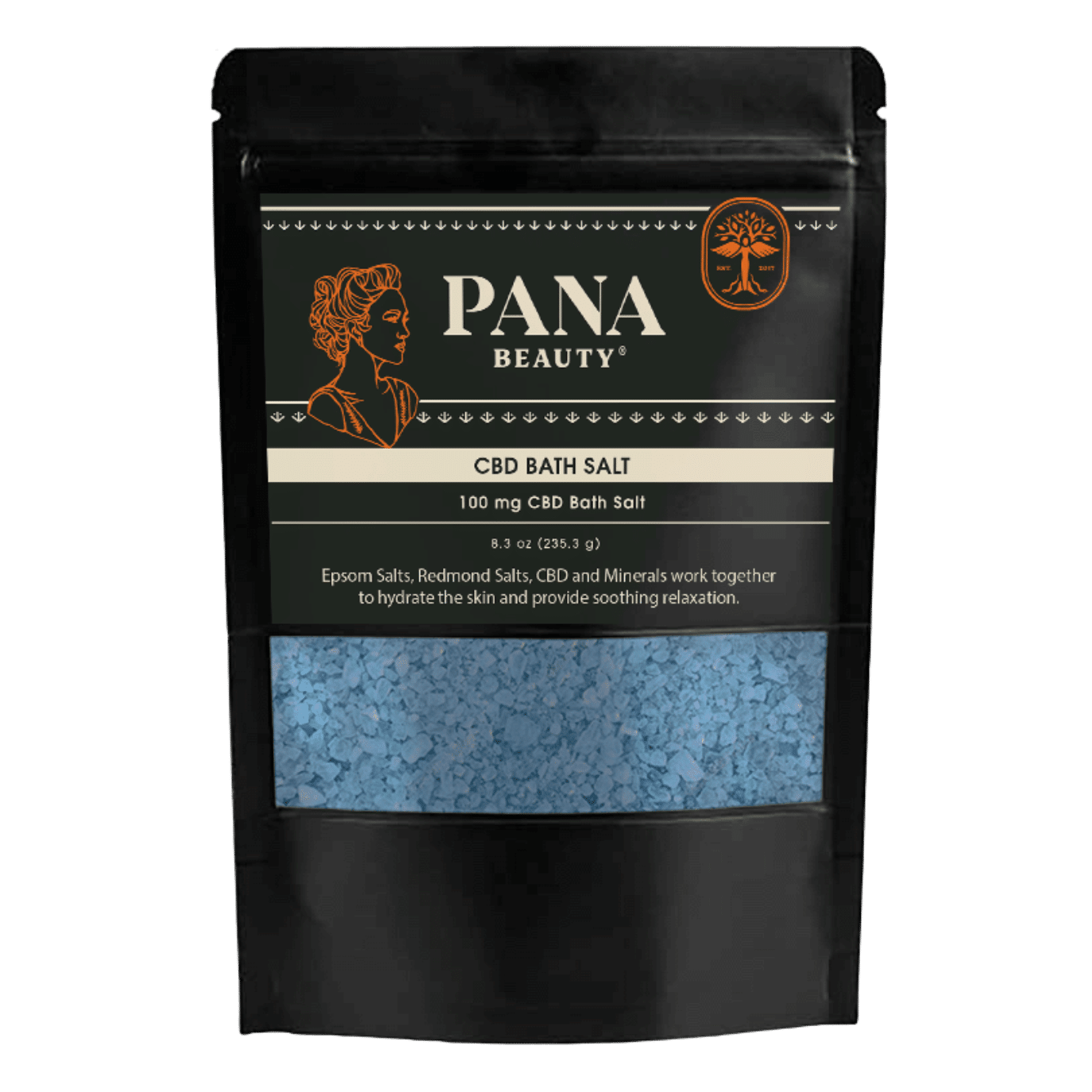Over the past few decades, CBD, otherwise known as cannabidiol, has risen in popularity as a natural, non-toxic, non-addictive alternative substance to help relieve a number of medical conditions in humans — anxiety, epilepsy, pain, inflammation, migraines, insomnia, and many more.
As CBD becomes more popular every year, pet owners are beginning to ask themselves, ‘What about my pet? Can they use CBD as well?’
The benefits of CBD (cannabidiol) for pets has been a subject of scrutiny lately. As cannabis has become legal both medically and recreationally across several different states, some accidents of dogs or cats overdosing on Marijuana have made the subject of CBD for pets a touchy one. That’s understandable, though, as many people aren’t aware that CBD doesn’t contain the mind-altering compound THC, which can be harmful to pets.

However, many dog and cat owners claim that CBD aids their pets’ medical conditions, showing improvements in pain relief, hyperactivity, seizures, anxiety, sleep, and appetite issues.
In this article, we’ll shed some light on the subject, answering all your questions relating to CBD and pets. You’ll discover that CBD is safe for pets, the benefits of CBD for dogs and cats, the difference between pet CBD and regular CBD, and how you can pick the right CBD product for your pet.
What is CBD & How Does It Work?
Before we begin diving into the specific relating to CBD and pets, it’s essential to understand what CBD is and how it works. In short, CBD, otherwise known as cannabidiol, is one compound among over a hundred compounds found in the Cannabis plant.

-

Canine CBD Softgels
From: $15.95 Select options This product has multiple variants. The options may be chosen on the product page -

Canine Fish Oil Drops
$14.95 Add to cart
In addition to CBD, chemical compounds produced in Cannabis plants are called Cannabinoids, including THC, short for tetrahydrocannabinol. These chemical compounds interact with different receptors throughout our body’s endocannabinoid system (ECS). The endocannabinoid system regulates a variety of essential processes in the body.
As a compound, CBD interacts with two receptors in our body’s ECS: CB1 and CB2:
• CB1 receptors are mostly found in the brain and are commonly associated with energy levels, appetite, mood, pain, and more.
• CB2 receptors are found in the rest of the body and are commonly associated with skin health and inflammation.
While CBD doesn’t chemically bond directly to either the CB1 receptor or the CB2 receptor, it binds loosely to interact with the receptors to provide several essential functions to aid the body. CBD’s primary function in relation to our body is helping regulate the body’s systems. In other words, CBD balances out the body by boosting its various systems to help them function better.
This is how CBD can help humans suffering from a variety of ailments:
• Pain and inflammation
• Brain-related issues
• Sleep disorders and insomnia
• Autoimmune disorders
• Anxiety
• Metabolic imbalances
So, if CBD can benefit humans, can it help relieve pets like dogs or cats who are suffering from injuries, diseases, or other ailments?
Is CBD Safe for Pets?
It turns out that just as humans have an endocannabinoid system (ECS), so do all mammals. Dogs and cats have an endocannabinoid system that works the same as humans. This means CBD can interact with CB1 and CB2 receptors in dogs and cats, aiding in health functions.
CBD continues to be researched in veterinary studies, though initial findings are showing that it does appear to be safe. On top of helping regulate essential bodily processes in humans, ECS also helps to control and break down CBD in animals’ bodies.
Not all CBD is created the same. So long as you provide your pet THC-free, CBD products, it should be safe. Do not give your pets any CBD oil that is labeled full spectrum as even 0.3% THC can be harmful to pets.
Why Should Your Pet Only Use THC-free CBD?
Unfortunately, as cannabis regulations have become less restrictive, and cannabis use is up both medicinally and recreationally among humans, there have been some adverse side effects. Some cannabis users’ pets have ended up with Marijuana toxicosis and taken to the veterinarian as a result of consuming their owner’s Marijuana that had THC in it.
However, if CBD is THC-free, and given in a controlled dose, it has been shown as beneficial to pets in aiding certain health issues like arthritis, inflammation, pain, and anxiety.
Certain studies have shown that THC has low toxicity in animals, while others have demonstrated fatal instances of Marijuana use in pets. To be on the safe side, avoid using CBD products that contain any THC on your pets.
These are the three common types of CBD oil for humans you will come across:
• CBD Isolate: This is >99% pure CBD. It doesn’t have any other chemical compounds from cannabis, including THC. CBD isolate is commonly used for humans and pets.
• Broad-Spectrum CBD: This is CBD that contains terpenes, flavonoids, and other compounds from cannabis, besides THC. Just like CBD Isolate, it doesn’t have THC. It is recommended for humans. You should use it with caution around pets due to the other phytocannabinoids it will contain.
• Full-Spectrum CBD: This is CBD oil that contains other compounds, including up to 0.3% THC. This type of CBD contains trace amounts of THC, which could harm your pet. It is recommended for humans. However, it is still recommended to use pure CBD isolate for your pet rather than Broad-Spectrum or Full-Spectrum CBD.
What about CBD products that has less than 0.3 percent THC? Is it safe to give to your pet?
No, CBD oil that has any amount of THC may not be safe. Any dose of THC could cause some harmful side effects, especially if you have a smaller pet. Because the CBD market is unregulated, the actual level of THC in full-spectrum CBD may be higher than the company officially claims in it.
Another precautionary issue with broad-spectrum and full-spectrum CBD is the terpenes found in both of these types of CBD. Terpenes may include peppermint, limonene, pine, and tea tree that are commonly found in a variety of plants (including Hemp and Marijuana plants) can be harmful to your dog or cat, even toxic in small amounts.
Can You Give Your Cat or Dog “Human” CBD?
Simply put, you can give your cat or dog “human” CBD if it is THC Free and contains no other ingredients. There isn’t a significant difference between human or pet CBD. However, you should keep in mind a few things if you do give them human CBD:
• Use smaller doses than what you see recommended on the bottle since they’re much smaller than you and will have a lower tolerance to the effects.
• Don’t give your dog or cat CBD oil and stick to CBD isolate.
• Always speak with your veterinarian before giving your pet any new supplement, even if it’s natural, like CBD. This is especially important if your dog or cat already has underlying health conditions.
You should note that even though CBD meant for humans isn’t harmful to pets, there are certain CBD products made specifically for dogs, cats, and even horses. For instance, the CBD dose required for dogs will vary in amounts depending on if they are small, medium, or large. This is to ensure they’re getting the proper daily dosage required for medicinal treatment.
How Can CBD Benefit Dogs?
Arthritis
As dogs start getting older into their teen years, it’s common to find symptoms of osteoarthritis that causes many harmful side effects in your dog’s bones and joints. Thankfully, CBD can help relieve some of the symptoms of arthritis in dogs. According to a study at Cornell University, CBD has been shown to help dogs in relieving symptoms of osteoarthritis.
Pain & Inflammation
The majority of dogs are naturally very active, which can lead to the development of inevitable aches, pains, and inflammation over time. Just like humans, dogs who are dealing with pain or swelling can use CBD to help boost the effects of the naturally occurring hormones in the endocannabinoid system, like anandamide, which aids in pain regulation.
Mobility
Many dog owners who have seen their dogs struggle with immobility have been pleasantly surprised to see that CBD can help increase mobility. The increased mobility is a positive side effect of the aid in pain relief.
Anxiety
Dogs, like humans, can also be affected by anxiety, which can stem from several things, including loud noises, separation, or crowds. CBD has been shown to alleviate symptoms of anxiety among dogs. You can check out this article for more about CBD for human anxiety.
Sleep Issues & Seizures
Two of the most common issues that can affect dogs, especially as they get older, are seizures and sleep disorders. Daily CBD use in dogs has been shown to help benefit dogs struggling with both seizures and sleep disorders.
How Can CBD Benefit Cats?
Just as dogs can suffer from health conditions, so can cats. For cats, the benefits of CBD are more focused on calming and relaxation properties.
Changes in the Environment
While most pets can be affected by changes in their environment, cats are particularly prone to different environmental shifts, which can cause behavioral issues and stress. CBD can help in calming your cat down if there’s a change in the environment at home: whether you’re moving houses, getting a new pet, or doing renovations.
Appetite Issues
If your cat is struggling with appetite issues and isn’t consuming regular food in the bowl, CBD has been proven as a useful aid in increasing appetite. CBD isn’t only helpful in aiding appetite, but it is also valuable for the digestive arena. If your cat has issues with vomiting or struggles with nausea, CBD can help relax them and help relieve any nausea. Transdermal products are more effective than oil for cats.
What Do Vets Think About CBD for Pets?
Veterinarians across the board, unfortunately, don’t have a definitive answer for CBD products for pets. However, this is because they aren’t legally allowed to recommend or prescribe it in the US as of 2020.
Vets have limited access to studying the potential aid that CBD can give dogs and cats, and likewise, they have limited access to understanding the possible side effects. Vets can face disciplinary action, including loss of license to practice for recommending or prescribing CBD for pets.
You can and should still discuss your pet’s potential use of CBD before beginning any dosage. If you live in California, it’s a bit easier to speak to vets. In September 2018, California passed the Assembly Bill 2215 into law, which makes it legal for veterinarians to talk about CBD use with their clients about their pets. They still aren’t able to legally prescribe it or recommend it, but you have a bit more freedom in speaking to them about CBD.
What Type of CBD Products Are Available for Pets?
While you could simply pick up a regular “human” CBD oil for your pet to use, it’s best to pick up a specific CBD product made for your pet since they will require a different dose. There are a variety of different types of CBD products available for pets:
• CBD Softgels
• CBD Tinctures
• CBD Transdermal
• CBD Tablets
• CBD Skin Sprays
• CBD Soft chews
How Do You Buy the Right CBD Product for Your Pet?
One final thing to remember before you go out and purchase some CBD products for your dog or cat is that you should find a trustworthy company.
The CBD industry is in its infancy of regulation, which means the ingredients written on the product label may not be entirely accurate in dosage. You should make sure the company you go with has done 3rd party lab-testing and can show results from these tests. Full transparency is essential to ensuring your pet gets the highest-quality of CBD to help them in the treatment they need.
In Closing
As your dog or cat ages, it’s common to see them beginning to experience minor injuries or ailments like arthritis, bone and joint pain, inflammation, sleep issues, digestive issues, or anxiety. Though the medical research is still limited, pets, just like humans have an endocannabinoid system that interacts well with by CBD and can have beneficial health effects.
Cats and dogs who have suffered from common ailments have been able to get relief from these symptoms through the use of pure CBD isolate when taken as a soft gel, capsule, or tincture.
You should remember to communicate with your vet as best as you can before you begin treating your dog or cat with CBD products. Even though they may not be able to accurately recommend for your pet to use or not to use CBD, they will be able to help you analyze your pet’s unique situation.












